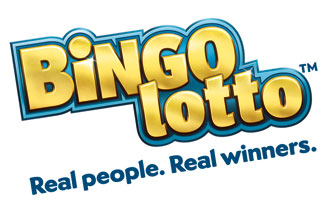
Despite having operated success-fully in Scandinavia for more than 15 years, BingoLotto's first stab at the UK, in February last year, was a resounding flop. The launch, which BingoLotto claims was a pilot, was abandoned after just six weeks because of poor ticket sales, apparently the result of it only having one retail partnership - with Spar. This time, however, it will have the might of Tesco underpinning its June launch.
The game's new format looks remarkably similar to its previous incarnation, with a mix of lottery and bingo games supported by TV shows on Virgin 1 and Challenge. The winners will be revealed during the programmes. It is questionable, then whether the game can make a better fist of it this time, the Tesco tie notwithstanding.
Consumers appear to be turning to pipe dreams of becoming lottery winners as an antidote to the prevailing gloom, with Camelot's latest six-month sales up by more than £180m compared with an increase of £54m in the previous 12 months. This may, then, seem an opportune time for BingoLotto to embark on another attempt to break into the market after its aborted introduction last year.
Fiona Hortopp, marketing director at BingoLotto, claims that, despite shutting down after such a short run, some positives came out of the game's first foray into the UK, and lessons were learned.
'Whilst, broadly, people would say it was a failure last year, from our perspective, it was a pilot series and what we got out of it was a very successful marketing campaign to raise awareness throughout the country,' she says. 'We had lots of people looking for tickets.' Unfortunately, the distribution problem made finding them another matter.
Although Hortopp is unwilling to discuss the fresh marketing strategy, £8m will be spent on a comeback campaign across TV, press, digital and point of sale. 'Our agency, Saatchi & Saatchi, did a bit of exploring around the country and found out that people are really looking for something escapist they can get into at home,' says Hortopp. 'They are looking for a fun night in, rather than a costly night out, and that's exactly where we are coming from and what our marketing will be focused on,' she adds.
Although Hortopp confirms that the TV show at the heart of the competition will run in 10-week bursts, it is unclear whether it will air during school holidays. This could make it difficult to gain consumers' loyalty, because, unlike a continuous weekly show, participation would be restricted by which weeks game cards were on sale and the accompanying shows on air.
Potential pitfalls
Lisa Thomas, chief executive of direct agency LIDA, predicts this will present its own set of problems. 'Once the brand is established, it needs to keep hold of any customers it has,' she says. 'Churn is a major issue in this market as people hunt for the best offers. Investing in establishing a core of regular players will pay dividends.'
BingoLotto does not see Camelot as a rival, with the former offering the chance to win life-enhancing prizes rather than life-changing ones. How-ever, funding for good causes is one thing the two games do have in common - 20% of BingoLotto sales will go toward sporting and other community groups.
Hortopp accuses Camelot of focusing on 'elite sport, sporting personalities and facilities'. She says that BingoLotto is looking 'very much at grass-roots sport'.
The Tesco deal might provide BingoLotto with a better chance of success than a year ago, and people will have less difficulty finding somewhere to buy the game cards. Still, the key challenge will be to generate awareness and loyalty in a market dominated by a single established player offering far bigger prizes to people chasing dreams.

